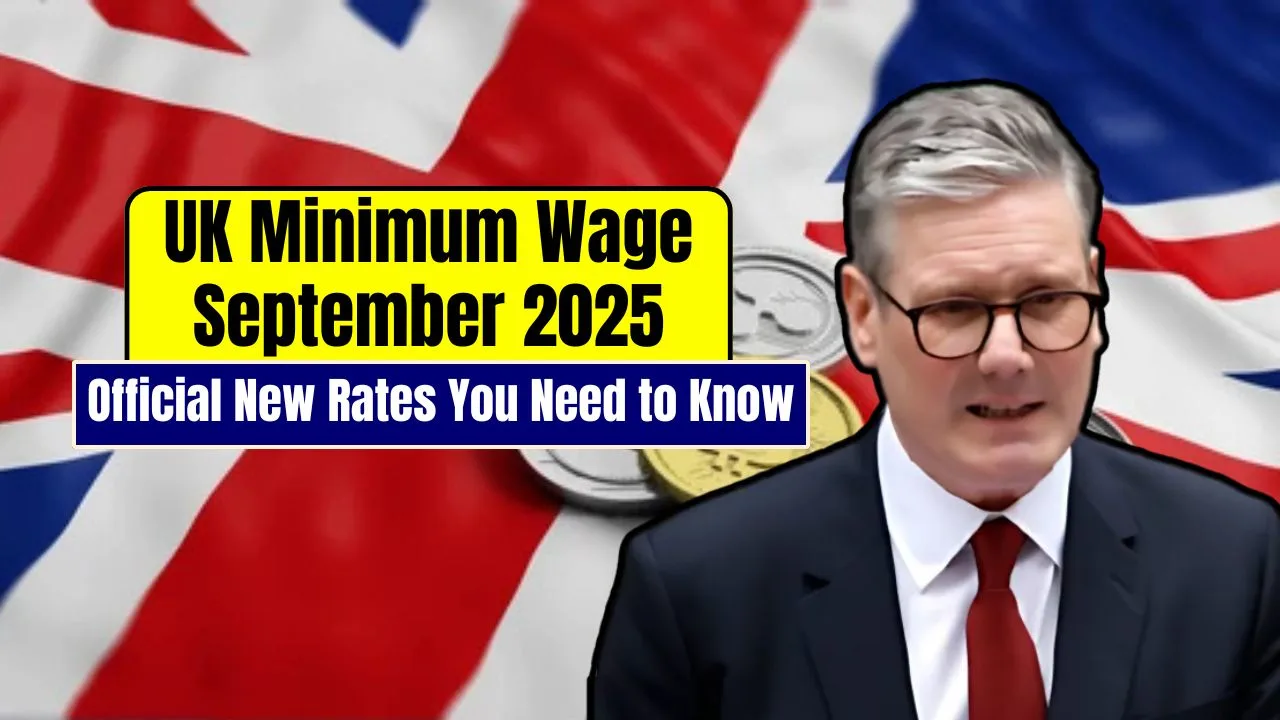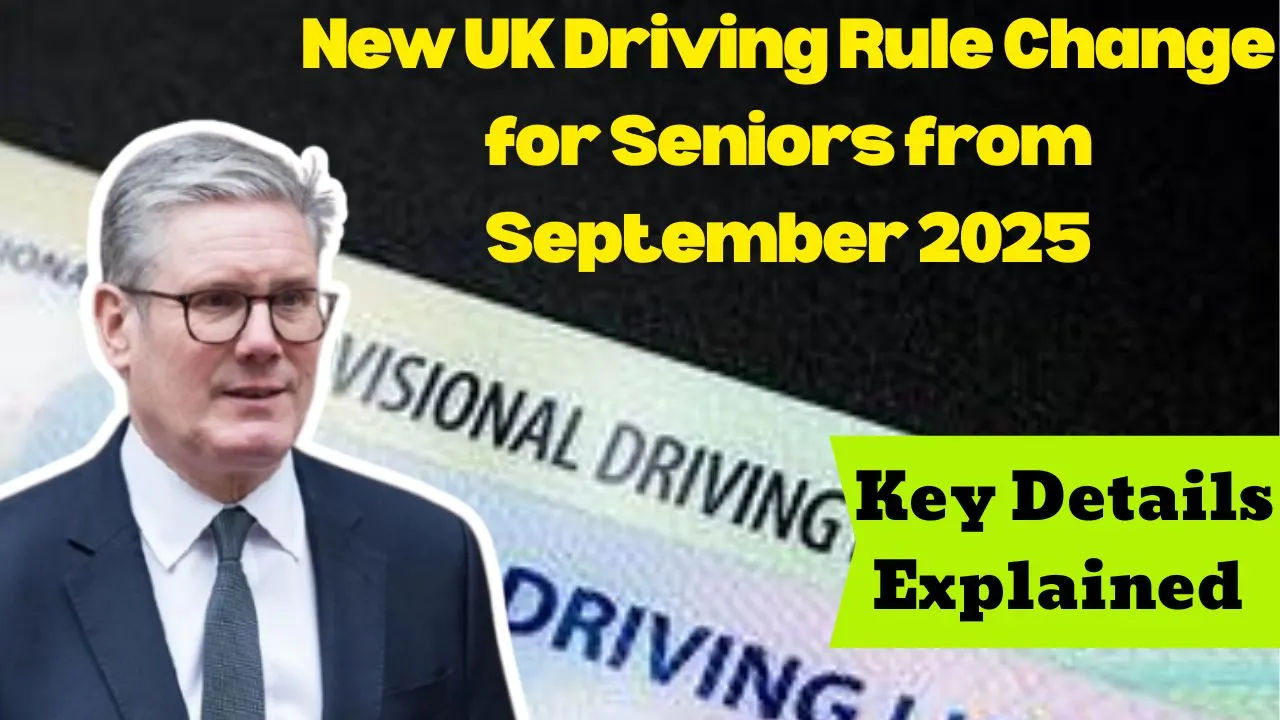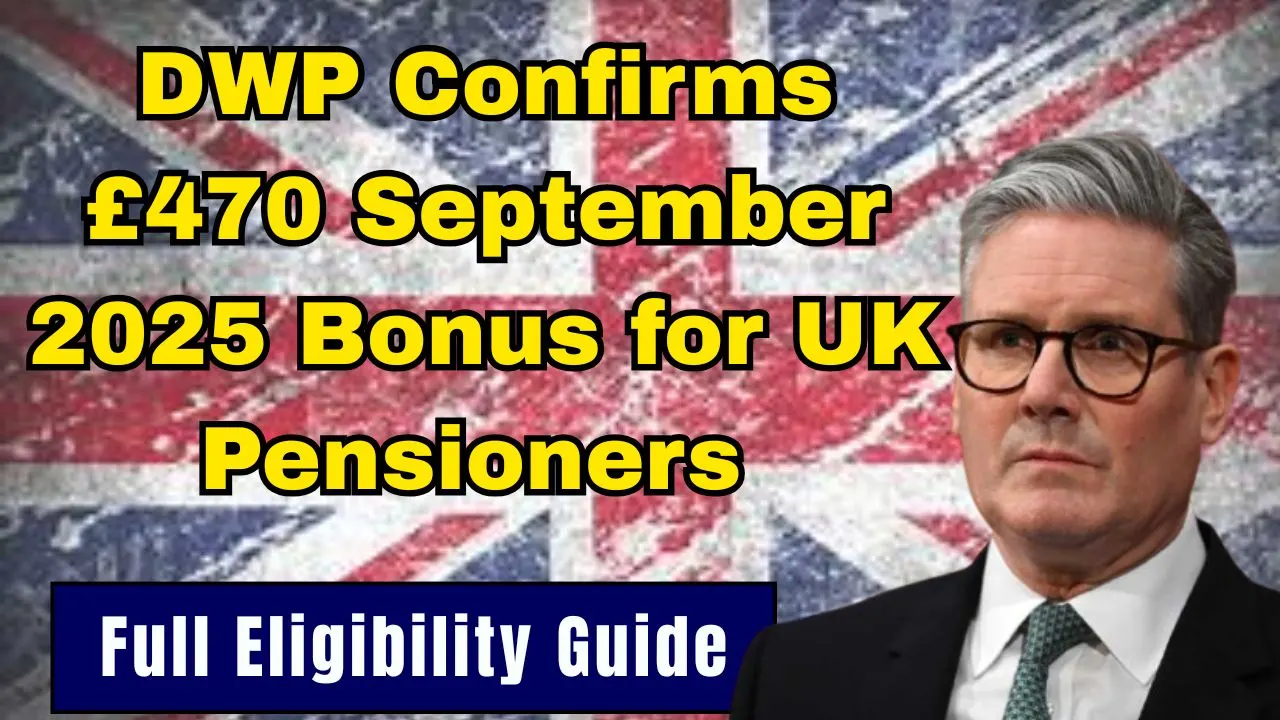The UK Minimum Wage September 2025 update is a major step toward helping workers earn fair pay during a time when living costs continue to rise. Whether you’re a full-time employee, part-time worker, apprentice, or running a small business, these changes will impact you directly. The Government has officially announced new rates for the National Minimum Wage and National Living Wage that will take effect from 1 September 2025.
If you’ve been wondering what the UK Minimum Wage September 2025 changes mean for your pay packet or payroll, you’re in the right place. This guide breaks down everything you need to know: the new rates, who they apply to, how they affect different age groups, and what actions employers need to take. Let’s dive in.
UK Minimum Wage September 2025: Key Changes You Should Know
The Government has brought forward this update to help workers keep up with inflation, rising rent, and increasing energy costs. The UK Minimum Wage September 2025 update introduces new hourly rates for all age groups, including apprentices. These changes are based on recommendations by the Low Pay Commission and aim to boost incomes for those who need it most.
Employers must act fast to stay compliant with the new rules. Failing to pay the updated rates could lead to heavy penalties, while workers should double-check their payslips to make sure they’re being paid fairly. The new rates are expected to benefit over two million people across the UK.
Overview of September 2025 Minimum Wage Rates
| Category | New Rate (From 1 Sept 2025) |
| National Living Wage (23+) | £12.20 per hour |
| 21–22 Year Olds | £11.00 per hour |
| 18–20 Year Olds | £8.50 per hour |
| 16–17 Year Olds | £6.50 per hour |
| Apprentices | £6.30 per hour |
What the minimum wage means for workers
The minimum wage is the legal minimum employers must pay their staff per hour. It’s there to prevent underpayment and ensure everyone gets fair compensation for their work. Different rates exist depending on your age or whether you’re an apprentice. With the UK Minimum Wage September 2025 increase, more workers will have stronger protection and more money in their pockets.
This change comes at a crucial time, as many households are feeling the pressure of ongoing economic challenges. For workers juggling bills, rent, food, and other essentials, even a small rise in hourly wages can make a big difference.
Why the rates are changing in September 2025
While changes to minimum wage usually take place in April, this year is different. The Government is introducing the new rates from September 2025 to provide quicker relief to low-income earners. This decision reflects the urgency to support households struggling with persistent inflation and the rising cost of living across the country.
By implementing the changes sooner, the Government aims to reduce in-work poverty and make everyday essentials more affordable for millions of workers. It’s a bold move designed to bring immediate financial benefits.
Official new rates for September 2025
Starting 1 September 2025, the updated hourly wages will be:
- £12.20 for workers aged 23 and over
- £11.00 for those aged 21–22
- £8.50 for 18–20-year-olds
- £6.50 for 16–17-year-olds
- £6.30 for apprentices
These rates are part of the Government’s plan to keep the National Living Wage in line with two-thirds of median earnings by 2027. The increases reflect real-world economic conditions and aim to ensure fairer pay for all working people.
Impact on full-time workers
For someone working 37.5 hours a week on the new National Living Wage, the annual salary before tax could reach approximately £24,000. That’s a significant improvement compared to previous years and provides more financial stability for workers trying to manage daily living costs.
With more income from wages, many workers may also rely less on benefits like Universal Credit, giving them more independence and control over their finances.
Benefits for part-time and casual workers
The minimum wage applies no matter how many hours you work, which means part-time staff and zero-hours workers benefit too. This is good news for students, carers, parents, and anyone balancing multiple jobs. The UK Minimum Wage September 2025 update ensures that every hour worked is paid at a fair and legal rate.
Better pay means more income security, especially for those who work irregular hours or seasonal jobs.
Effects on apprentices and young workers
Apprentices and workers under the age of 21 will also benefit from the new wage structure. While the apprentice rate is still lower than the main minimum wage, the increase acknowledges rising living costs. It’s a positive step toward attracting more young people into work-based training and helping them manage their expenses while gaining skills.
Young workers aged 16 to 20 will also see a welcome bump in their pay, helping them afford transport, education, and daily essentials.
How employers should prepare for the changes
Employers must ensure they are fully compliant by 1 September 2025. That includes:
- Updating payroll systems
- Reviewing employee contracts
- Notifying staff about wage increases
- Budgeting for higher wage costs
Ignoring the new wage laws can lead to serious consequences, including fines and public naming by HMRC. Employers should take this opportunity to review their overall pay structure and make sure everything is above board.
Enforcement and penalties for non-compliance
The HMRC is responsible for enforcing the minimum wage. If an employer fails to pay the correct amount, they can be forced to:
- Repay all underpaid wages
- Pay a fine of up to 200% of the arrears (capped at £20,000 per worker)
- Be publicly named and shamed
Workers who suspect underpayment can report their employer confidentially and get support from ACAS or a trade union.
Interaction with benefits and tax credits
An increase in wages could impact means-tested benefits like Housing Benefit or Universal Credit. While your wages may rise, your entitlement to certain benefits might decrease. It’s important to check with a benefits calculator or speak to the DWP for personalised advice.
The Government may also adjust benefit thresholds to prevent people from being worse off, but it’s best to stay informed and act early.
Regional differences in living costs
Despite a national minimum wage, the cost of living varies across the UK. In places like London and the South East, expenses are significantly higher. While this update brings the country closer to a “real living wage,” many still argue for regional rates that reflect local living standards more accurately.
For now, the same rates apply nationwide, but campaigns continue to push for more location-based fairness in the future.
What this means for the UK economy
Raising the minimum wage can have mixed effects on the economy. On the plus side, it puts more money in workers’ pockets, which they are likely to spend locally. This can boost small businesses and support economic recovery.
However, businesses may face increased costs, which could lead to higher prices or changes in hiring. The impact will vary across industries and company sizes, but overall, the move is expected to support long-term economic growth.
Tips for workers to maximise the benefit
- Check your payslip to ensure you’re paid correctly
- Update your tax code with HMRC if needed
- Use a benefits calculator to understand how your entitlement might change
- Start saving or consider boosting your pension contributions
- Look for upskilling opportunities that might lead to higher pay
Advice for small business owners
- Budget ahead to manage higher wage costs
- Use automation to improve efficiency
- Apply for Government support where available
- Keep open communication with your staff
- Review pricing models to maintain profitability
How to check if you’re being paid correctly
Use the Government’s Minimum Wage Calculator to confirm your pay is accurate. All you need is your age, hours worked, and pay rate. If you believe you’re being underpaid, raise the issue with your employer or reach out to ACAS for help.
Future outlook for the minimum wage
The September 2025 update is part of a larger plan to bring the National Living Wage to two-thirds of median earnings by 2027. This means workers can expect further increases in 2026 and beyond. Employers and employees alike should stay alert to future announcements and prepare accordingly.
Final Thought
The UK Minimum Wage September 2025 changes are more than just numbers—they represent a real opportunity for workers to earn better pay and for businesses to build fairer workplaces. Whether you’re earning the minimum wage or managing payroll, staying informed is the best way to adapt and benefit.
Feel free to share this post with your network, and don’t forget to check back for more updates on employment law, benefits, and workplace rights.
FAQs
1. When do the new minimum wage rates start?
The new rates come into effect on 1 September 2025.
2. Do apprentices qualify for the higher minimum wage?
Apprentices have a separate rate, which will rise to £6.30 per hour from September.
3. Will this wage increase affect my Universal Credit?
It might. Check a benefits calculator or speak to the DWP for advice based on your income.
4. What happens if my employer doesn’t follow the new rates?
They can face fines, back payments, and public naming by HMRC.
5. Do part-time workers get the same rate?
Yes. The minimum wage applies to all workers, regardless of how many hours they work.












